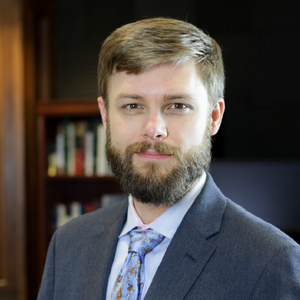
Good Government
Trent England | December 20, 2018
Will Oklahoma freeze free speech?
Trent England
A group of soccer moms hear about a bill in the legislature that would affect school sports. They decide to post about it on Facebook. One of them runs the team’s website and puts information there. Two of them drive to a couple of public meetings to raise awareness about the issue, and several other moms kick in for gas.
Are they lobbyists? Not yet.
If the Oklahoma Ethics Commission gets its way, they will be. While the current proposal would not require them to register, it would mandate that every statement about a pending bill—whether on a personal social media page, in a meeting, or even just person-to-person—will require a warning that the statement is a “lobbying communication.”
Sound outrageous? It gets worse.
What if the opinions of those moms differ from the opinions of their kids’ coaches? The moms might want to keep their activities private to protect their kids. Right now, their privacy is safe, but the Oklahoma Ethics Commission is trying to change that, too.
The Commission wants to force disclosure of people who contribute to efforts like this. So if the moms chip in enough for gas, or if they start a group called “Moms for Kids” to make their efforts more effective, they could be required to list all their names, home addresses, and employer information online. And they would be required to post a report online within 24 hours of spending any money to share their opinions with other people.
The Commission claims this proposal is just about going after large groups, like the NRA, National Right to Life, or Planned Parenthood. But here’s how a regulation like this really works.
First, it starts out with two major exemptions. One is for media. For some reason, newspapers and television stations could editorialize all they want and they would never be classified as lobbyists. Small-time bloggers or people who do freelance journalism in their spare time, however, would not be exempt. The other exemption is for groups that only talk with their members, which could protect some labor unions.
The biggest organizations would have no problem complying with the law. Their lawyers would make a little more money filling out forms, and they might reorganize in order to minimize the hassle, but their activities would continue as before.
Some medium-sized organization, like local charities, churches, or smaller non-profit groups, would be silenced. Of course, the regulation does not silence them directly. But the costs of complying with the law, and the risk of making a mistake and being fined and having your reputation damaged, would cause some groups to censor themselves. They would choose not to speak out on public policy issues in order to protect themselves. Other groups would continue to speak out, but could lose supporters when people realize their personal information will be posted online. Either way, the result of this regulation will be less speech. It will have what courts have called a “chilling effect” on freedom of speech.
Finally, those soccer moms. They likely would have no idea about this regulation. Who would guess that a personal Facebook post requires a disclaimer? Or that chipping in for gas might require posting your name online? And, of course, the Commission has no intention of going after soccer moms, so why worry?
It is true that many people would violate this rule during every legislative session without repercussions. But when one of those persons falls afoul of a legislator, they could easily be singled out for selective enforcement. After all, they didn’t include the required warning on their Facebook posts! They broke the law. And ignorance of the law is no excuse (a doctrine that survives from a time when there were few laws, and most were common sense).
The Oklahoma Ethics Commission proposal to regulate “indirect lobbying” is a solution in search of a problem. It is evidence that when all you have is a hammer (regulation), everything looks like a nail (something in need of regulating). Instead of tangling up free speech in red tape, and threatening to expose Oklahoman’s personal information online, the Commission should focus on its real mission, which is to police the ethics of people inside government.

Trent England
David and Ann Brown Distinguished Fellow
Trent England is the David and Ann Brown Distinguished Fellow at the Oklahoma Council of Public Affairs, where he previously served as executive vice president. He is also the founder and executive director of Save Our States, which educates Americans about the importance of the Electoral College. England is a producer of the feature-length documentary “Safeguard: An Electoral College Story.” He has appeared three times on Fox & Friends and is a frequent guest on media programs from coast to coast. He is the author of Why We Must Defend the Electoral College and a contributor to The Heritage Guide to the Constitution and One Nation Under Arrest: How Crazy Laws, Rogue Prosecutors, and Activist Judges Threaten Your Liberty. His writing has also appeared in the Wall Street Journal, USA Today, Washington Times, Hillsdale College's Imprimis speech digest, and other publications. Trent formerly hosted morning drive-time radio in Oklahoma City and has filled for various radio hosts including Ben Shapiro. A former legal policy analyst at The Heritage Foundation, he holds a law degree from The George Mason University School of Law and a bachelor of arts in government from Claremont McKenna College.